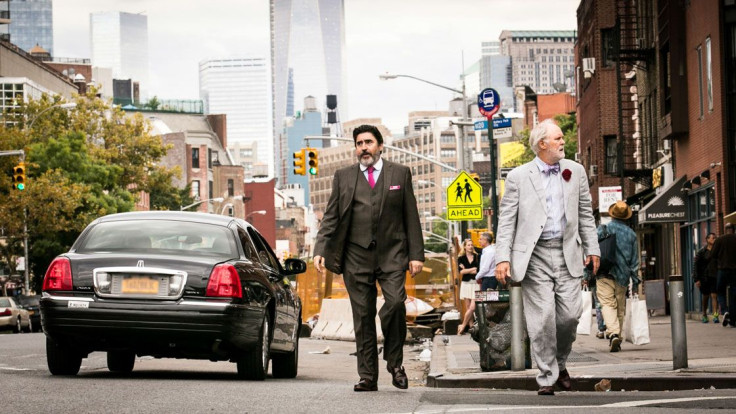'Love Is Strange' Review: My One And Only In New York
Love conquers real estate woes in Ira Sachs' triumphant heartbreaker.

There has never been another movie like “Love is Strange,” because there couldn't have been. A few short years ago, the story would likely have led up to this one's beginning: A stylishly understated same-sex wedding ceremony followed by a stylishly raucous reception in a New York City apartment. But this story leads down, eventually to the West 4th Street subway station stairwell, where “Love Is Strange" might have ended. But it goes on.
A column called “The Hunt” runs in the real estate section of the Sunday New York Times; it's popular even among those who don't bother with the rest of the comically aspirational pages. “The Hunt” chronicles an individual or couple's search for new digs, typically prompted by a life change: new relationship, new baby, new job, new money. The budgets usually qualify as "modest" (by New York Times standards, anyway) and there are always a few setbacks along the way to a satisfying compromise; perhaps the closest thing a lifelong New Yorker will ever get to a happy ending.
It's tempting to imagine that “Love is Strange” filmmaker Ira Sachs ("Forty Shades of Blue," "Keep the Lights On") and his co-writer, Mauricio Zachiras, had a subverted notion of this column in mind when they created the story of Ben and George, a newly married but long-committed couple whose celebration is viciously undercut by a terrible, involuntary change in circumstances. In fact, it was a news story of another kind – a gay teacher at a Catholic school was fired after marrying his partner – that Sachs told Variety inspired the premise.
You could devote an entire movie to the infuriating and deeply unjust circumstances that force Ben (John Lithgow) and George (Alfred Molina) to sell the apartment where they planned to live out their golden years. Because the selling price won't buy them a new one, they have to choose between living together in godforsaken Poughkeepsie or separately in the city they both love almost as much as they love each other. You could forgive a movie for preaching against the hypocrisy, cruelty and absurdity of punishing a hardworking man for exercising a hard-won legal right. And a New York City real estate investment that doesn't return? The height of outrage.
But Sachs invites us to push past it with the same determined acceptance Ben and George show each other and their reluctant, but not unwelcoming, hosts. Sometimes through gritted teeth, but just as often with wide smiles, George and Ben stumble – as though in a daze -- through the physical and emotional chaos of quasi-homelesness. They might be bulls in a china shop (one more than the other), but they are always ready with a bear hug – and one hug in particular will break all but the stoniest hearts.
Sprint would call Ben and George's circle a “framily,” but blood runs through it. Ben moves in with his nephew Elliot and his wife, Kate, (Marisa Tomei), a work-from-home writer who has an understandably difficult time adjusting to having a chatty houseguest in her space. But she hides her resentment better than their teenaged son Joey, with whom Ben shares a bunkbed. George moves physically closer to his lost home, settling in on the couch of his police-officer neighbors, a warm, easygoing gay couple who love to entertain. George tries desperately to make himself invisible, but the close quarters won’t allow it. One sometimes wishes that Ben, however congenial, would make the same effort, but alas, he doesn’t seem capable of shrinking.
These artsy, progressive, educated folks are the kinds of characters we’re used to seeing with unexplained but yet somehow plausible wealth. “Love is Strange” stands out for many reasons, but one is its focus on the other artsy, progressive, educated folks in New York – the ones for whom wild success stays permanently out of reach. A common refrain these days is that there is no room for the middle class in New York City; Sachs' love story defiantly carves out a space for us, however cramped.
Like the euphemistic descriptors popular with purveyors of shrinking New York City real estate, to call this story “charming” is misleading – because it doesn’t come close. “Love is Strange” might be a small independent film, but it is so much bigger than it looks.
"Love is Strange" opened in limited theatrical release last weekend and is expanding into multiple markets on Friday.
© Copyright IBTimes 2024. All rights reserved.






















